SEO: We all have it. Who needs it? Everyone, that's who. If you exist as a business in 2022, you need a website. If you have a website, you need that website to rank in Google's search since that's where a ton of your traffic is going to come from. To do that, you need to understand SEO.
 This post is just a giant compilation of useful SEO statistics. If you're not convinced you need SEO, read through it and learn why you do.
This post is just a giant compilation of useful SEO statistics. If you're not convinced you need SEO, read through it and learn why you do.If you need to convince a boss, take these stats to them. Or, just use it as a reference doc; I don't mind. Let's dig right in.
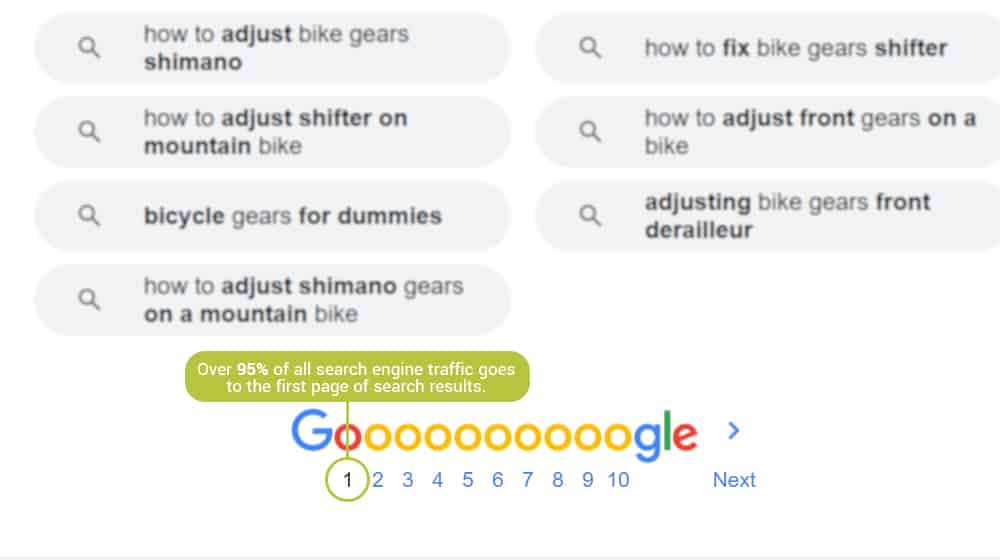
That means if you're not on page one, you might as well not exist, at least for that query.
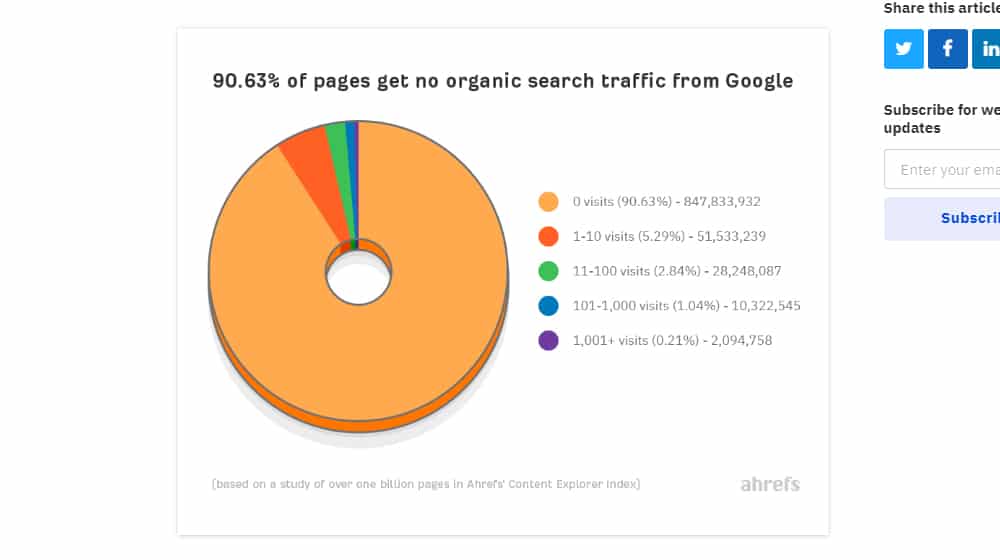
Keep the 80/20 rule in mind. 80% of your traffic will come from 20% of your content, so that's where you put your efforts in.
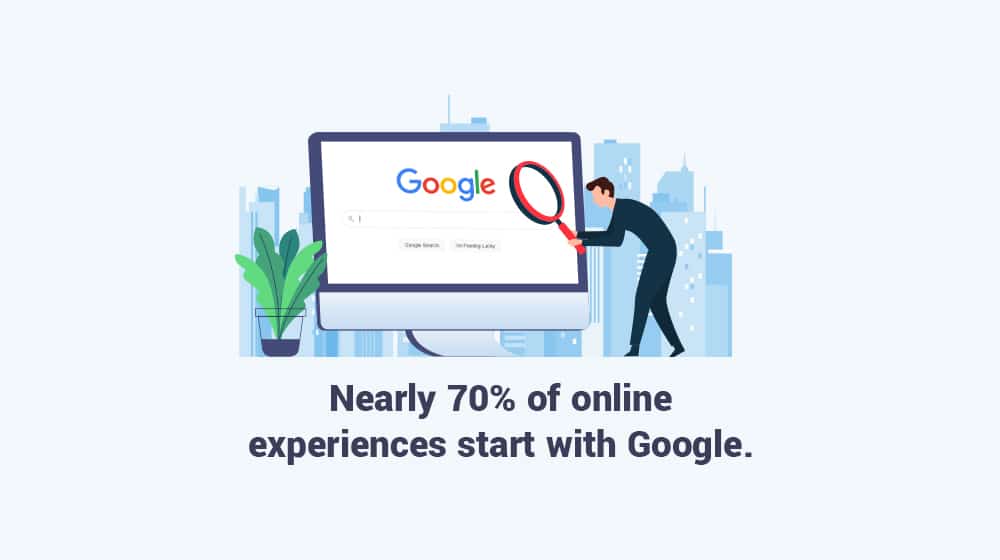
Not just because they're often a browser homepage, but because Google is the gateway to the web. When you want to find something new, Google is the way to go.
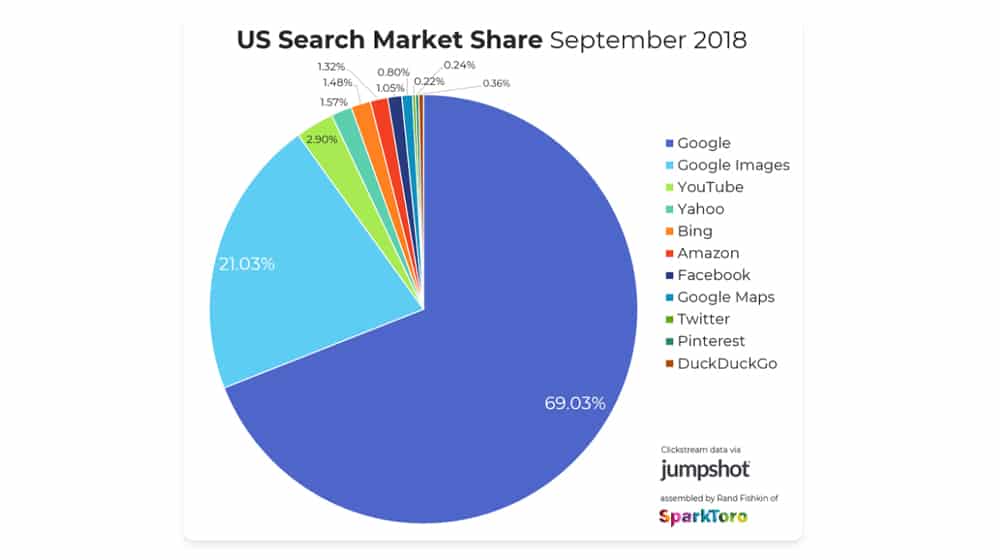
That's international, too. People all around the world are using Google more than any other service.
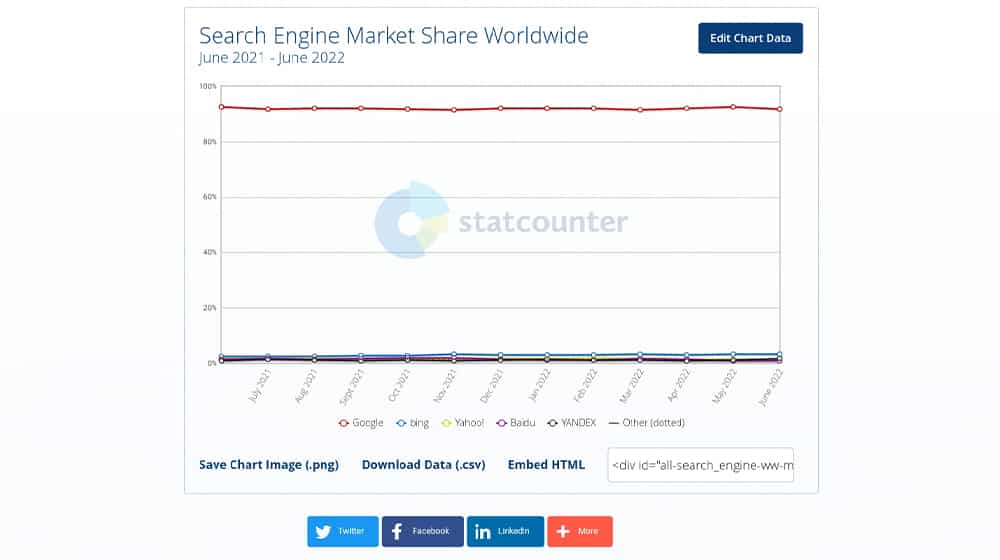
Other search engines dominate certain kinds of search (YouTube for video, Amazon for products), but Google is the largest for the web.
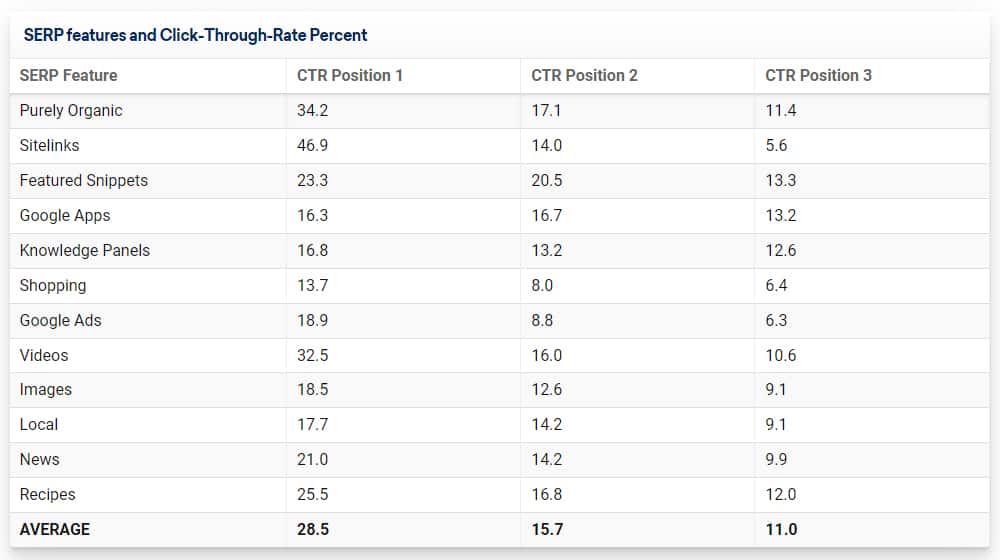
Other kinds of results surrounding it have similar rates. Sitelinks are higher, ads are lower, but the top spot is always the best.
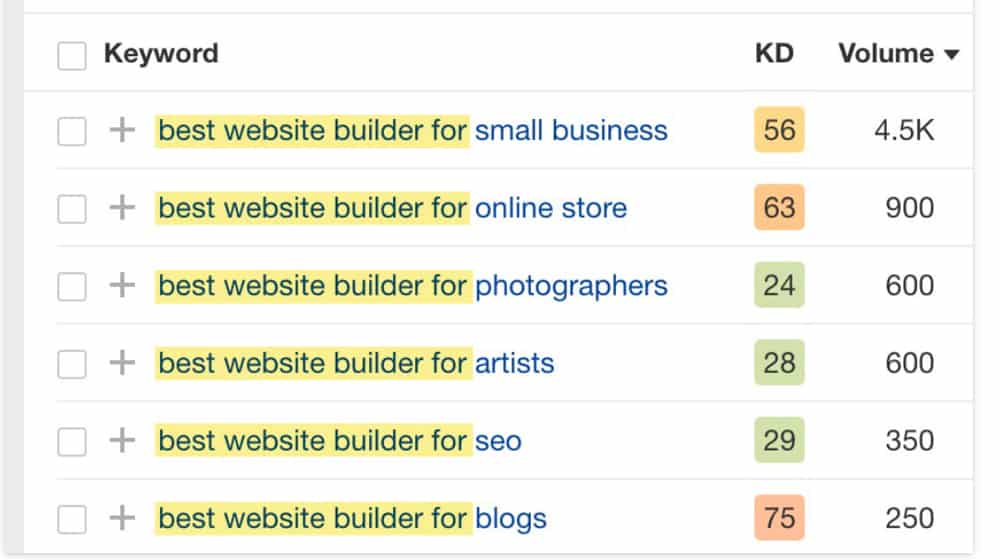
The vast majority of the time, people are using long-tail keywords to find specific results, so that's the kind of content you need to target and produce.
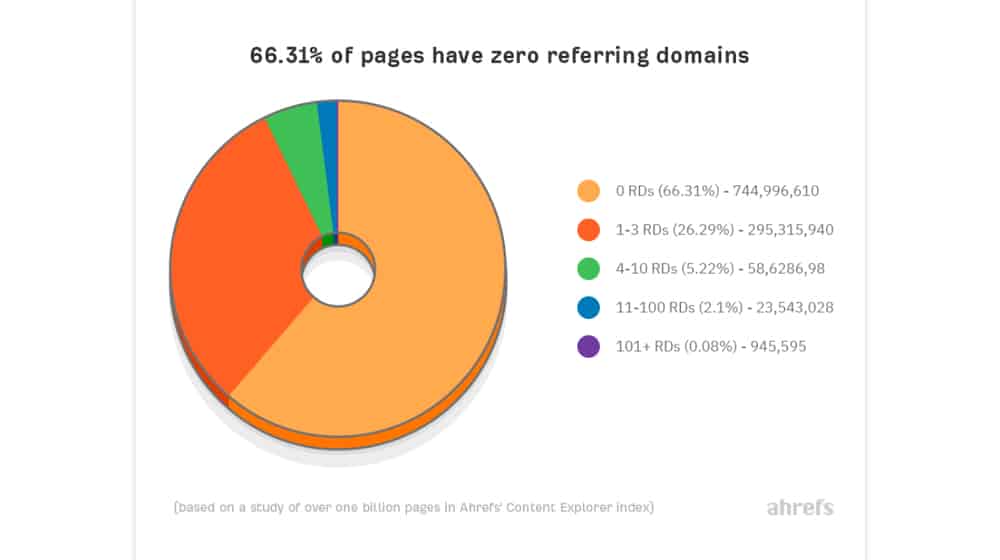
This means you can get a leg up over the competition almost universally simply by building a handful of backlinks. Since Google relies on backlinks for ranking, it's an easy way to gain a lot of value.
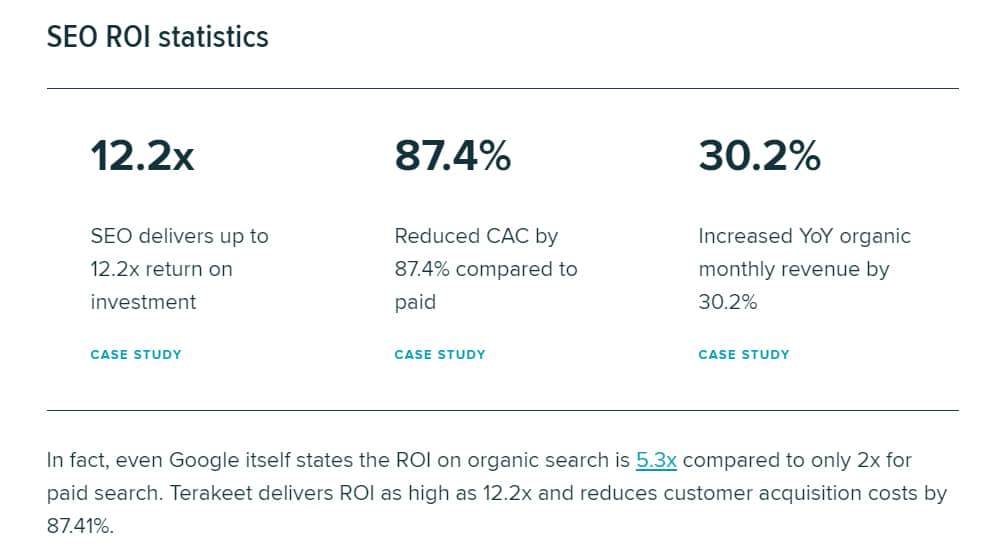
Sure, SEO is "free" in that you don't need to spend money doing it, but as in all things, the more you're willing to spend, the more you can get out of it. 12x ROI is quite respectable!
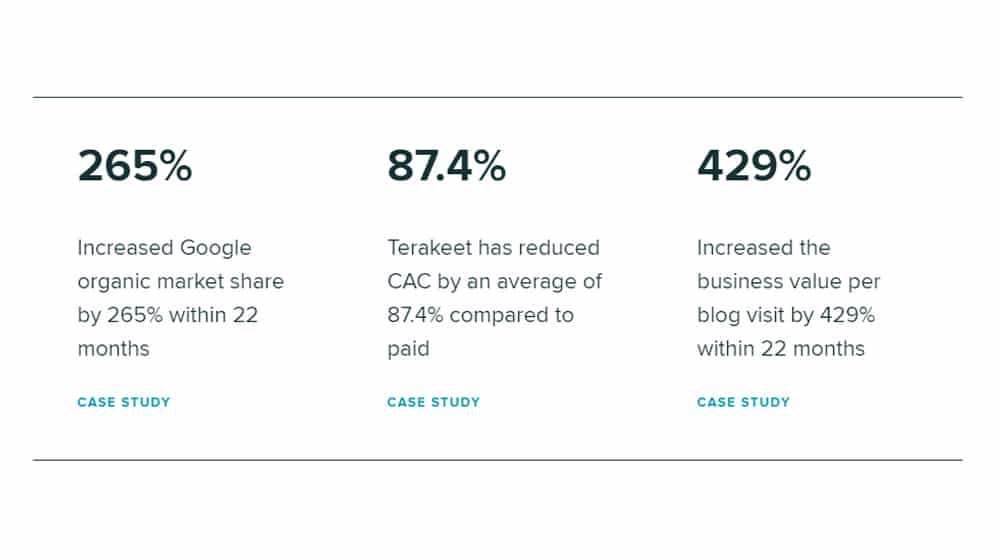
SEO is usually most effective as a top-of-funnel marketing technique, so it's a great way to get people into your orbit in the first place.
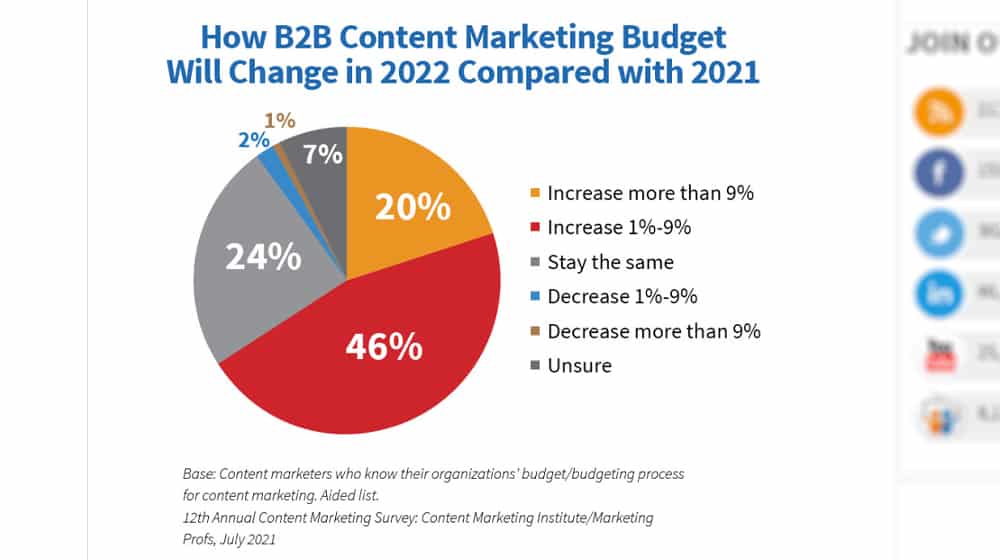
If you're not investing in content marketing, you're falling behind. Even if you are, you need to be improving your marketing efforts to keep up with the competition.
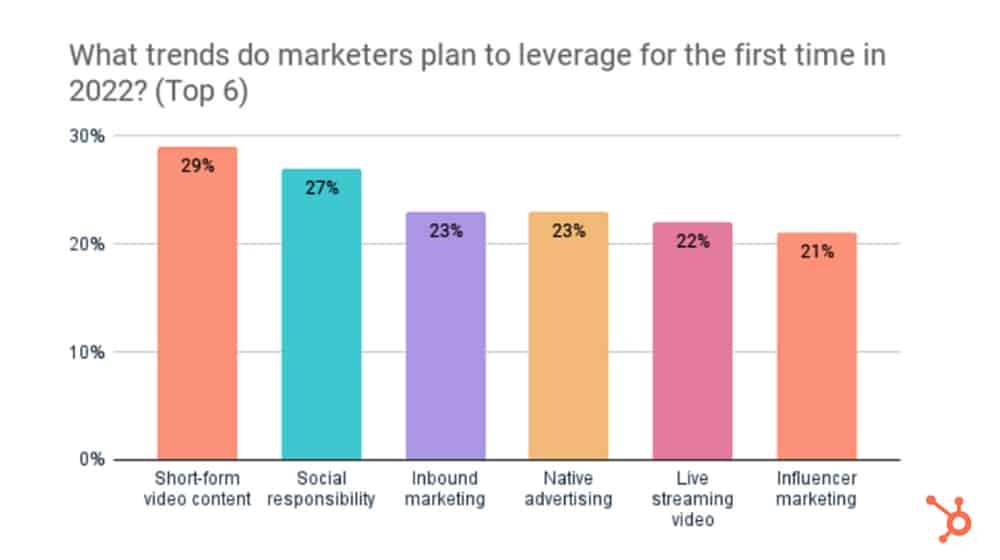
That's not to say that writing isn't necessary – it is – but short-form video especially is growing more and more popular with every passing year.
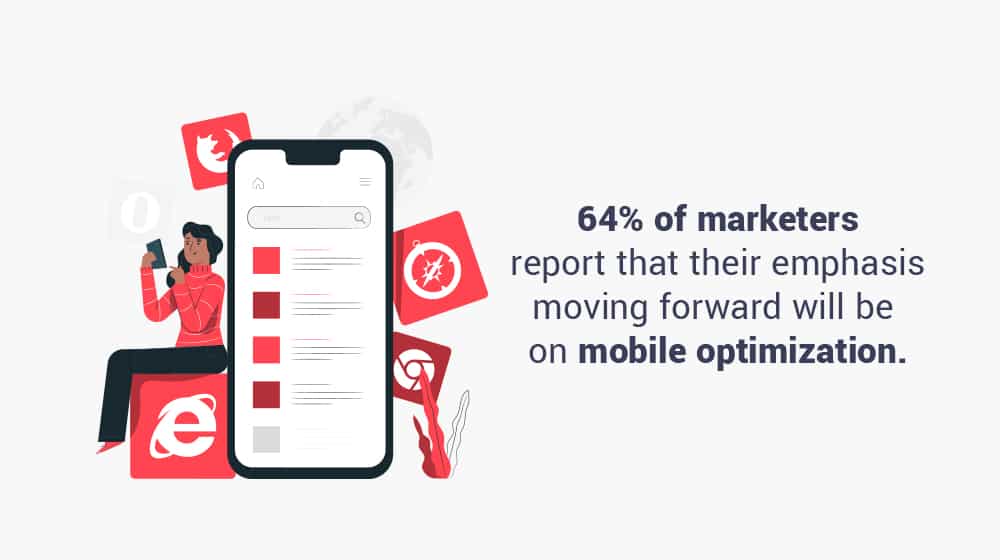
Since over half of all web traffic is from mobile devices today, missing that audience is a devastating mistake.

No matter how sophisticated Google's algorithm gets, backlinks and the "web" of links connecting websites will always be one of the most important factors.
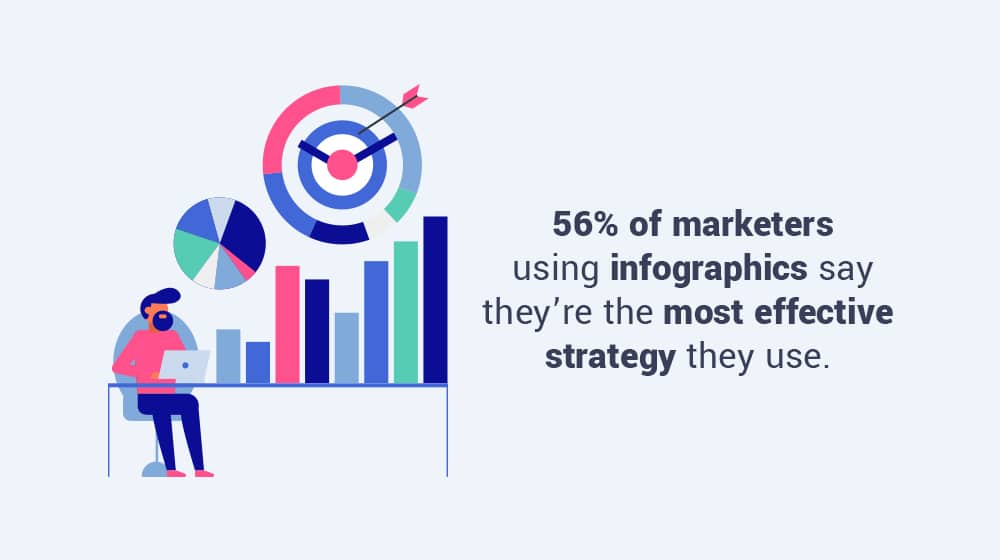
Infographics need good content to support them, too. Luckily, I know plenty about how to support an infographic, so let me know if you want a full post on that subject.
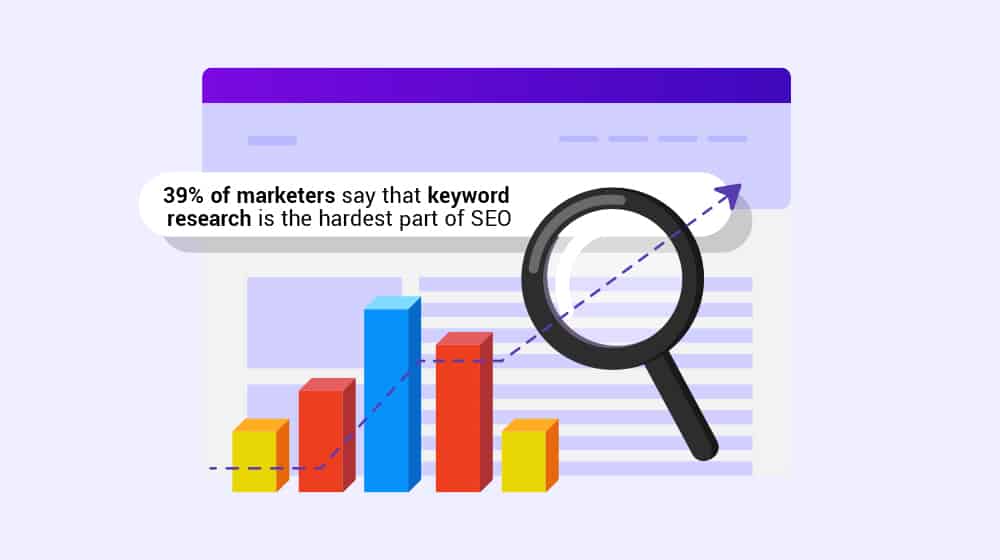
It's not easy, that's for sure, but it has to be done. Keywords make the online world function, and even with all of Google's latent semantic indexing and other language quirks, keywords are still critical.
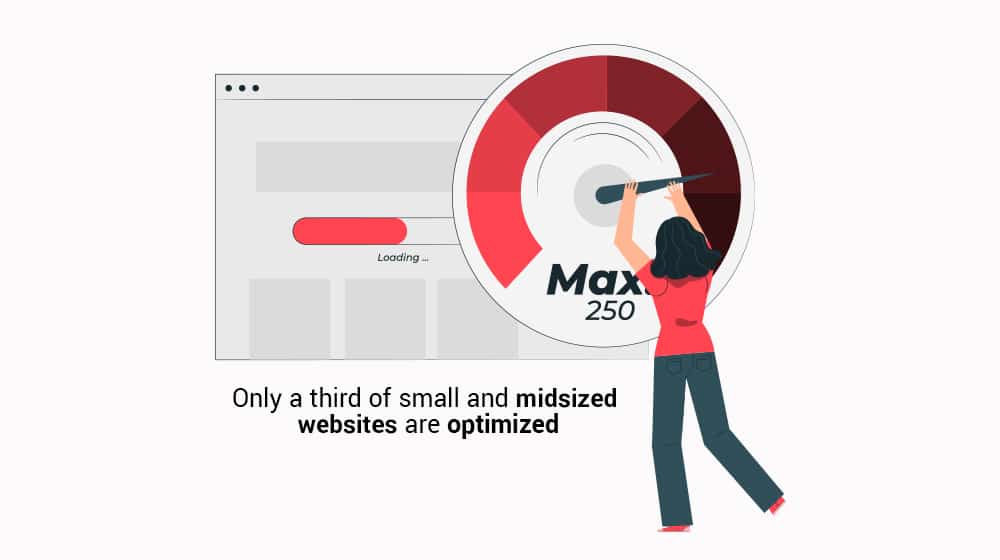
Simply by having an optimized website, you're ahead of most of the competition. Sure, there will always be a few that fight you every step of the way, but doing the bare minimum still gets you ahead of the average.
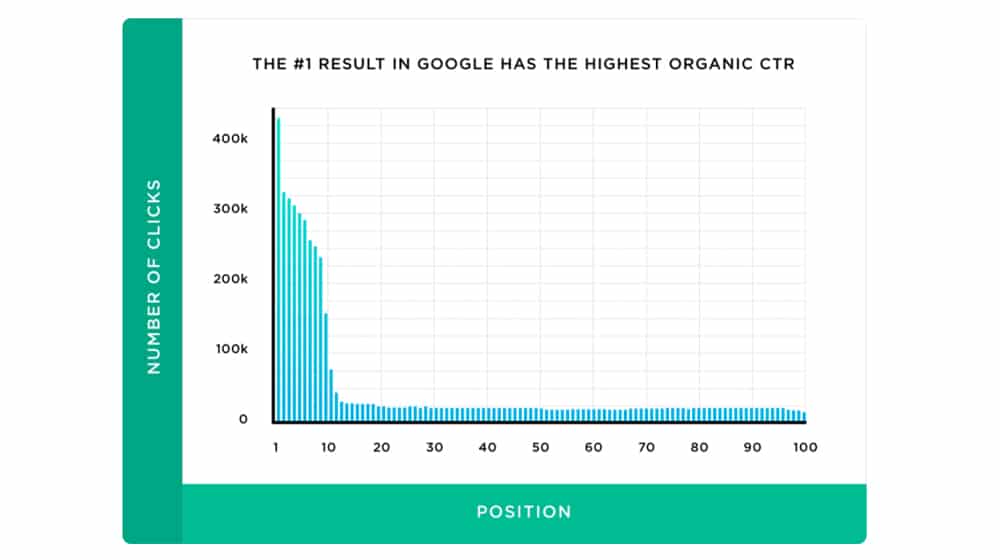
It's actually crazy how much it drops off from one to two, from two to three, and from three to four. Everyone else is fighting for scraps. You really, really want to be in position #1 or position #0 (the knowledge graphs.)
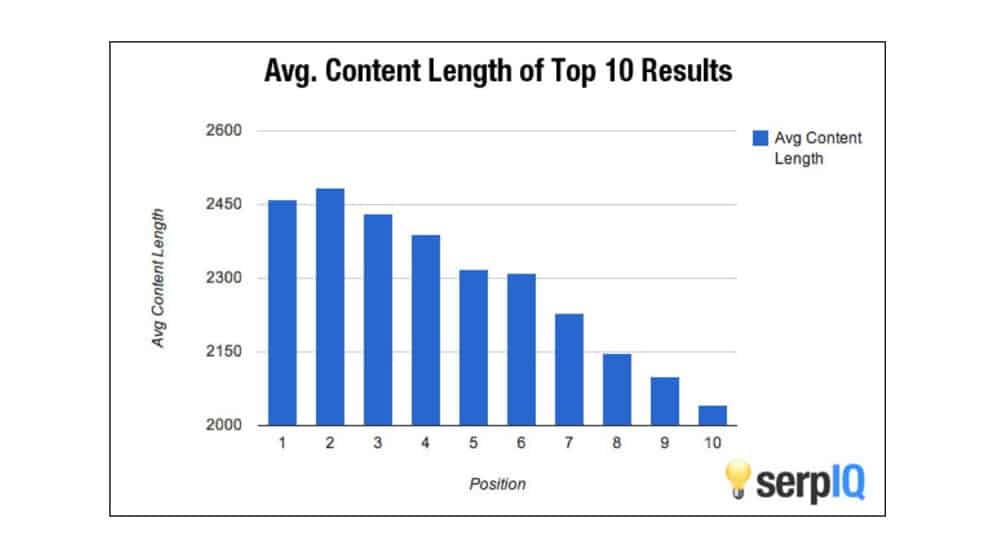
The average length of content is something like 1,400 words, so you need to nearly double it to fight for first place in most cases.
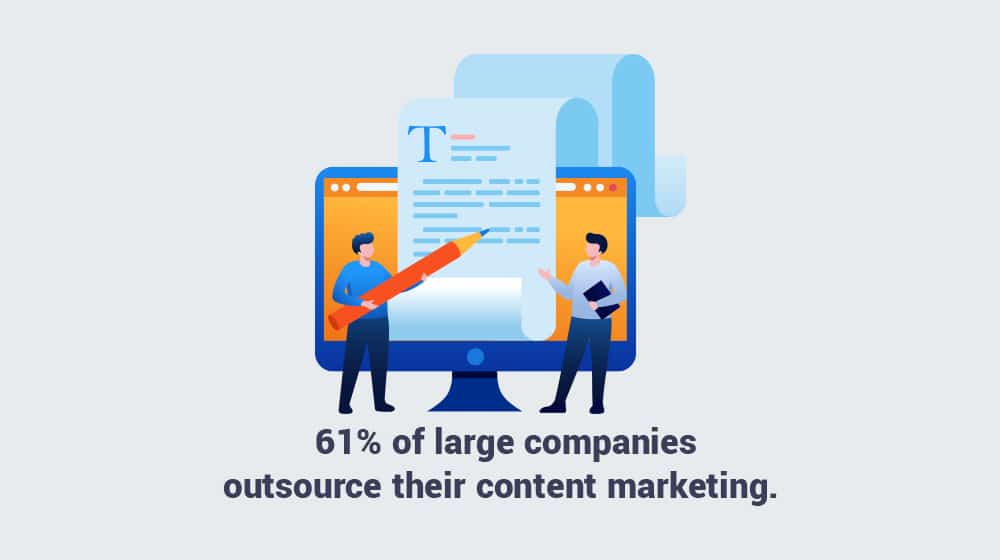
Hey, there's a reason why I made this site for freelance writers and the people who hire them! Writers are in increasingly high demand as content becomes more and more important year after year.
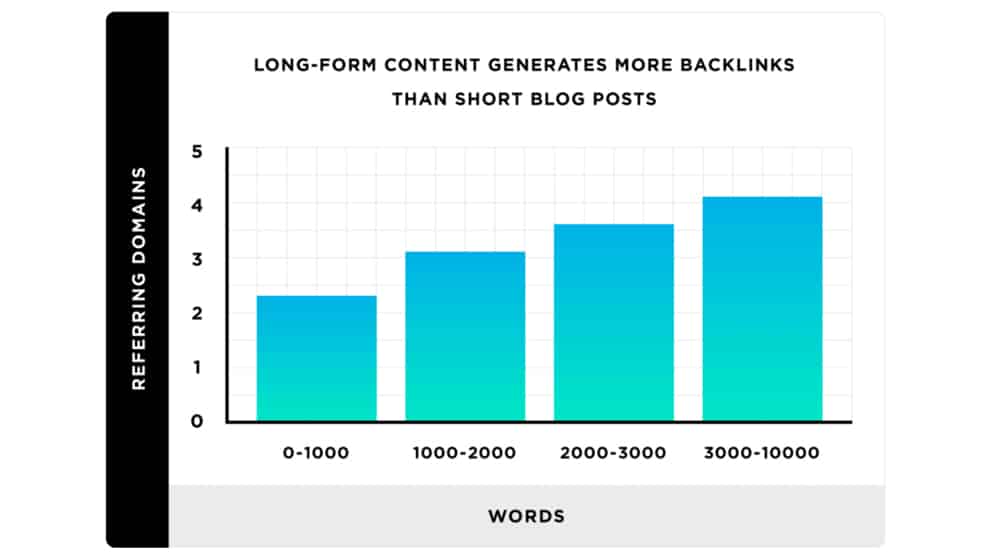
People want their content to be authoritative and trustworthy, and you don't have space to build that authority or trust if you're writing 500-word blog posts to answer simple questions. It pays dividends to write longer content, even for simpler topics.
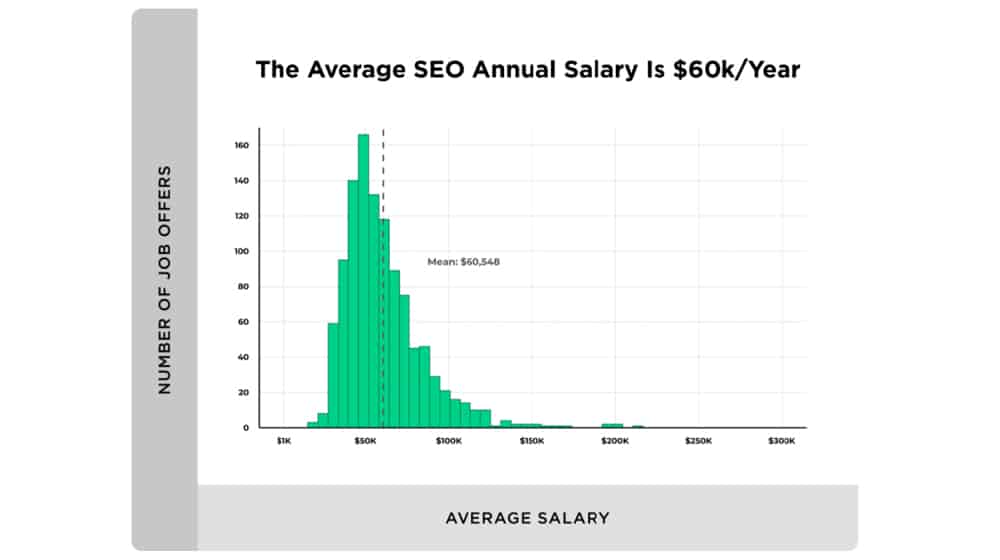
That may sound like a significant investment (or maybe it doesn't, depending on the kinds of people you're usually hiring), but remember that 12x ROI figure from up above? The salary of your SEO people is part of that investment.
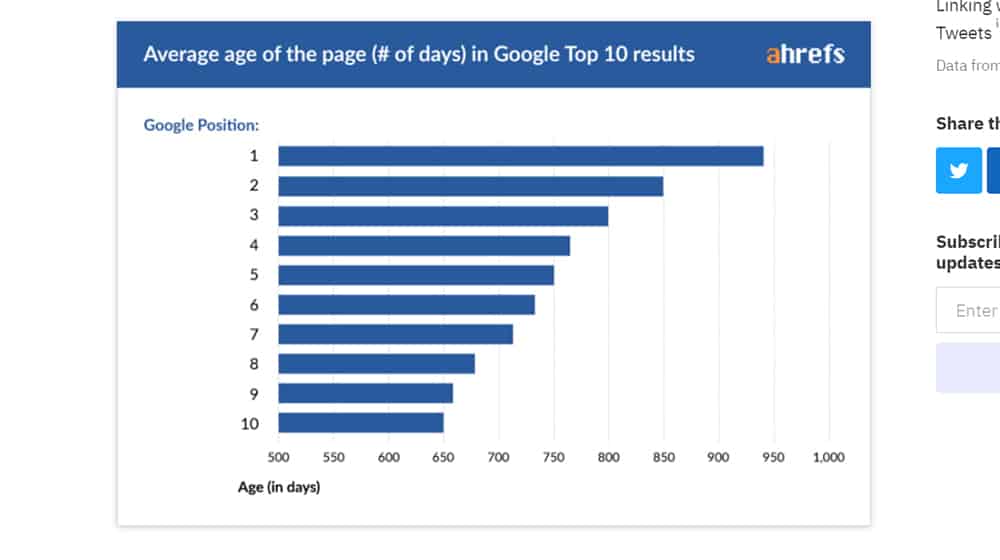
SEO and content marketing are a long-term game. Unfortunately, far too many businesses try it for a few months or a year before deciding it doesn't work and abandon it right before it would start showing results.
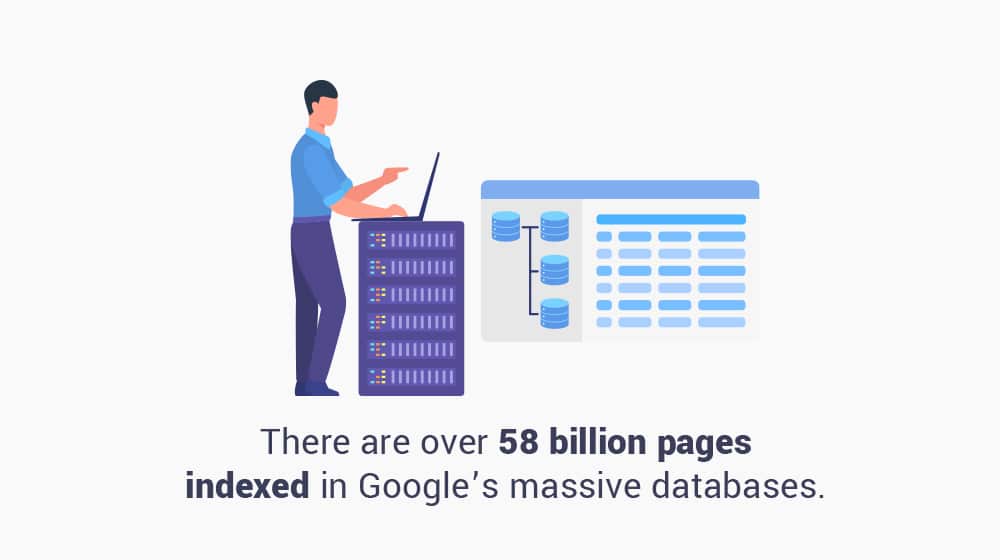
Of course, that doesn't mean all of those pages are relevant; just that Google knows about them and hasn't had a reason to remove them from the index. Remember, too, that that's pages, not sites. One site can have hundreds or thousands of pages, after all.
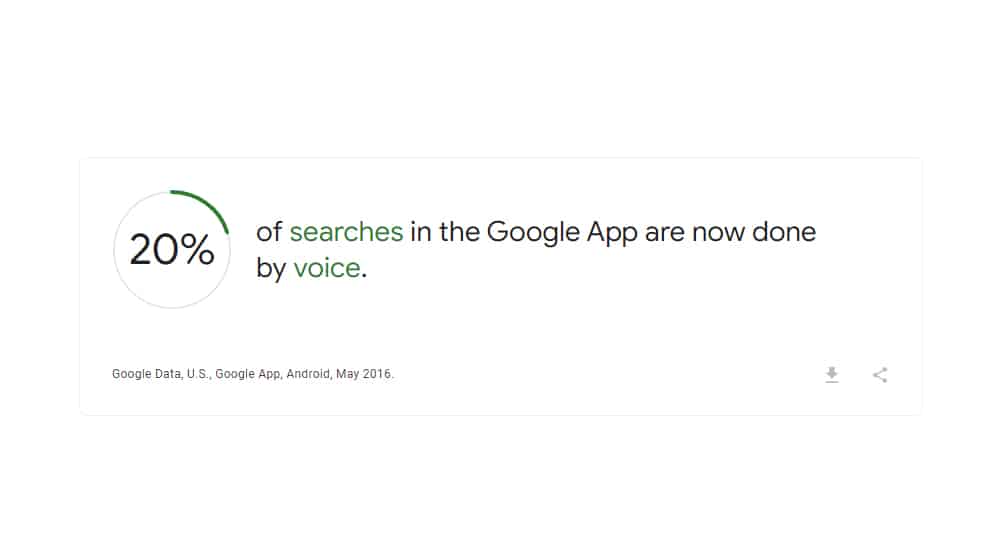
Over half of all homes have some kind of smart speaker system (though that number skyrockets if you include Google's voice search in Android and Apple's Siri), so voice search is exceedingly important.
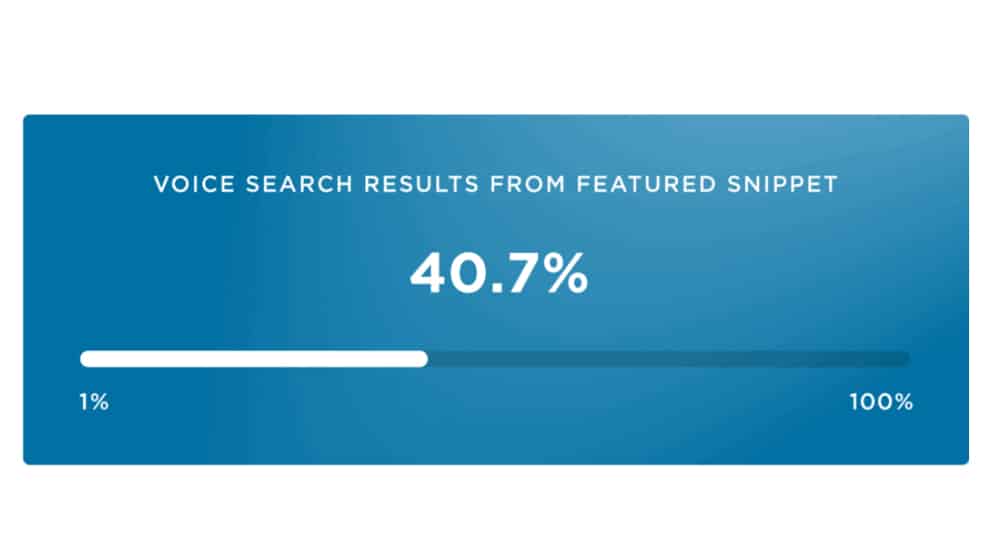
In order to get featured snippets, your site needs to use Schema markup for just about everything you can. It's well worth the effort, given the sorts of returns you can get from it.
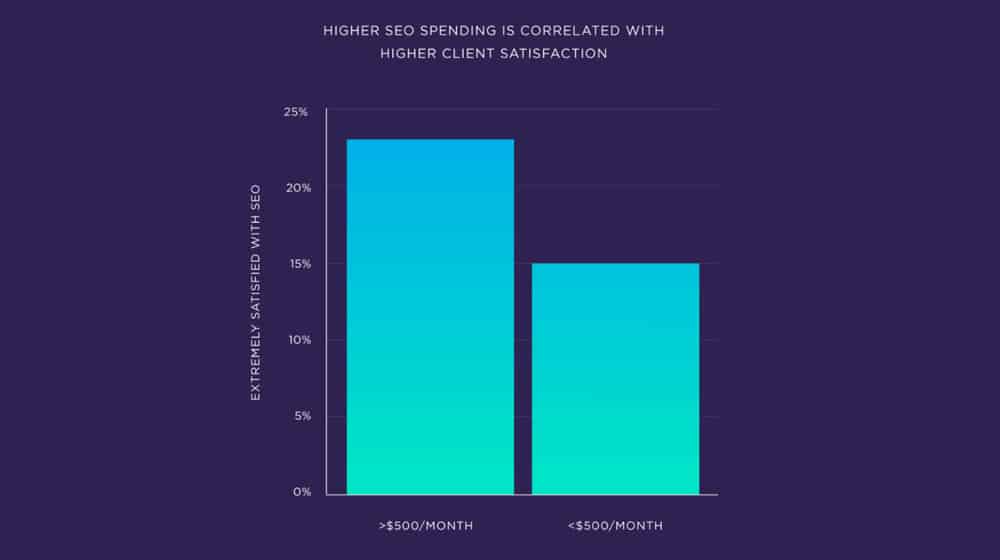
Specifically, businesses spending under $500 per month were 75% more likely to be dissatisfied than those spending over $500. Likewise, those spending over that threshold were dramatically (53%) more likely to be "extremely satisfied" than those spending less.
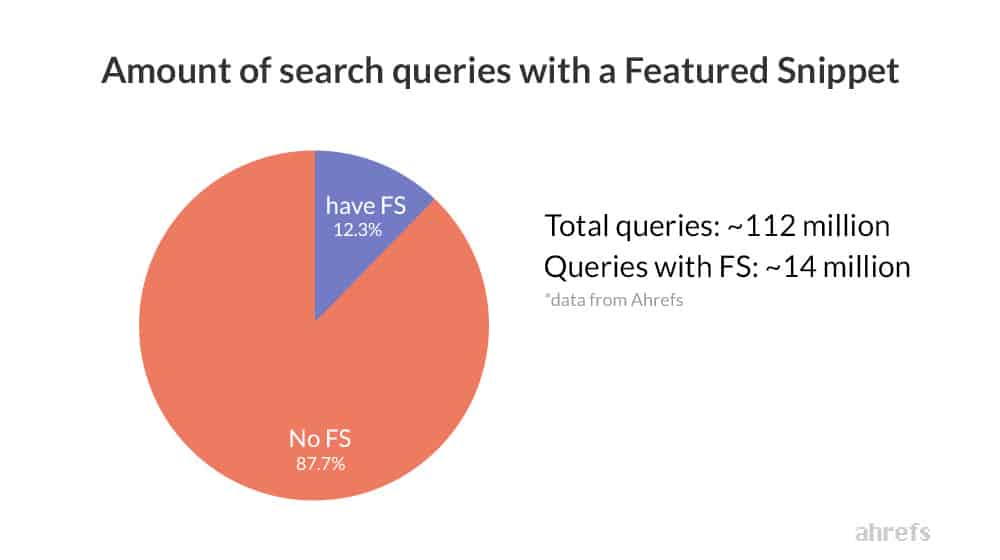
This is a combination of two factors. The first is that still relatively few sites are even implementing Schema. The second is that a lot of queries simply don't have room for featured snippets, or those snippets wouldn't be worth much to the query.
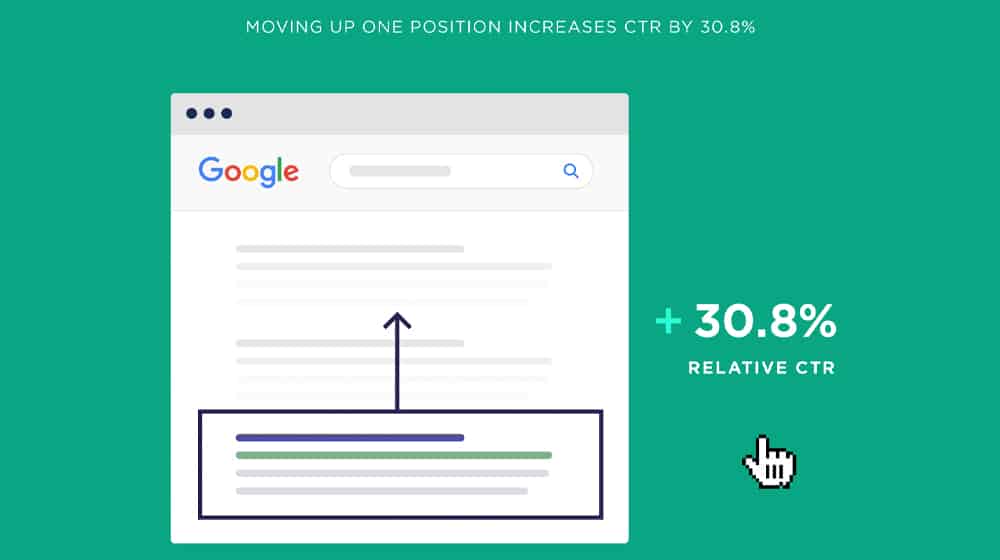
It's often dishearteningly difficult or impossible to push to #1, but even increasing from #5 to #4 would have a significant effect. Any increase is better than nothing.
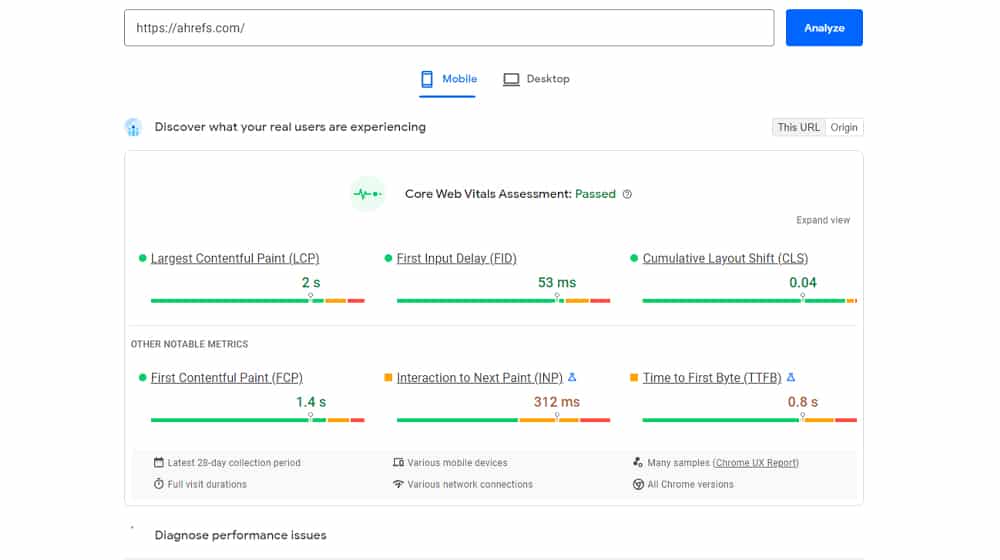
These factors range from the use of keywords in your title tags to the number and authority of links pointing to your site, to your site speed, to much, much more. Backlinko maintains a list of the ranking factors, with proof that they're relevant, over here. You might be surprised by what's on the list.
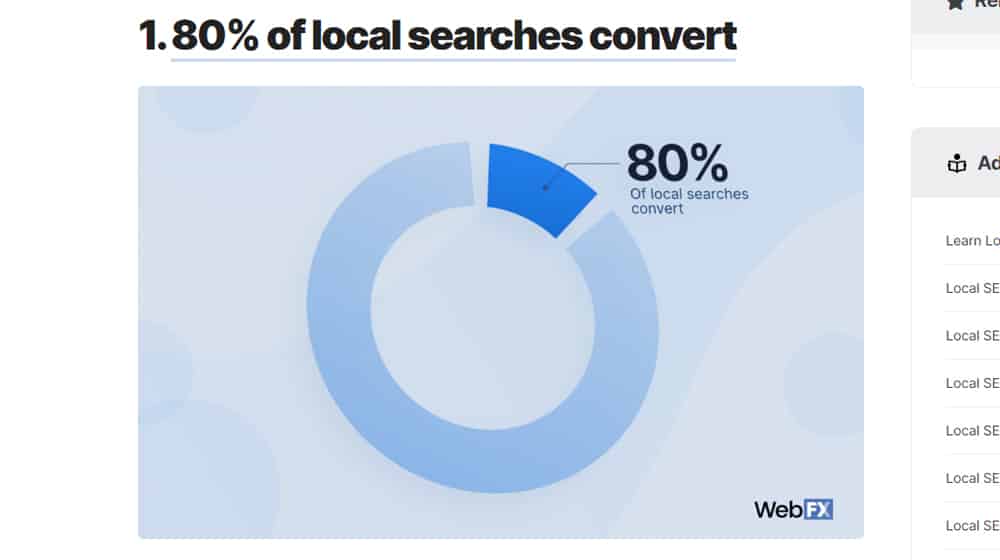
Local search is incredibly important for small businesses, especially since using local keywords is one of the few ways they have to out-compete larger businesses. Google wants to avoid letting megacorporations simply snuff out local competition, so they heavily favor local results for local queries.
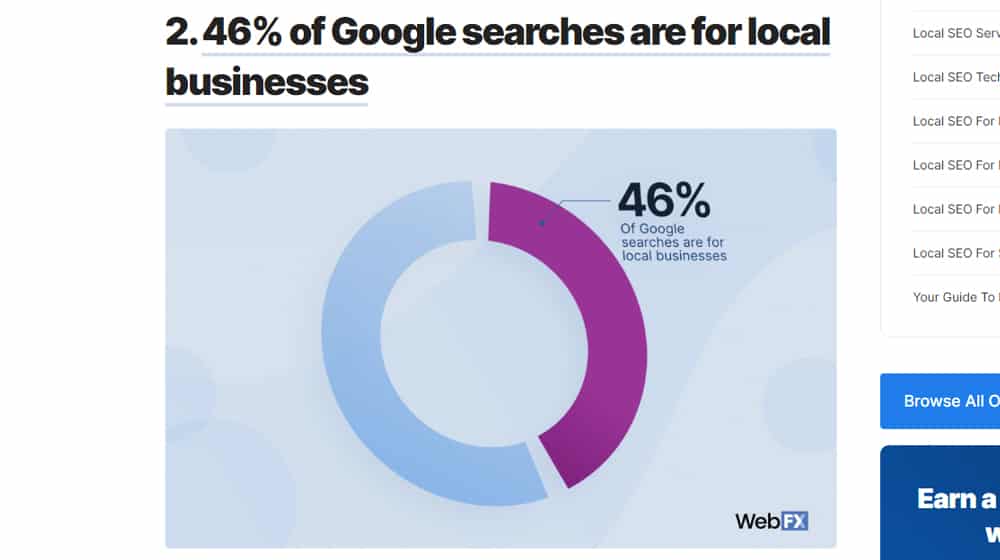
That's nearly half of all Google searches. Lots and lots of people are looking for things around them, not general queries or broad-use information. Local businesses have quite the advantage, don't they?
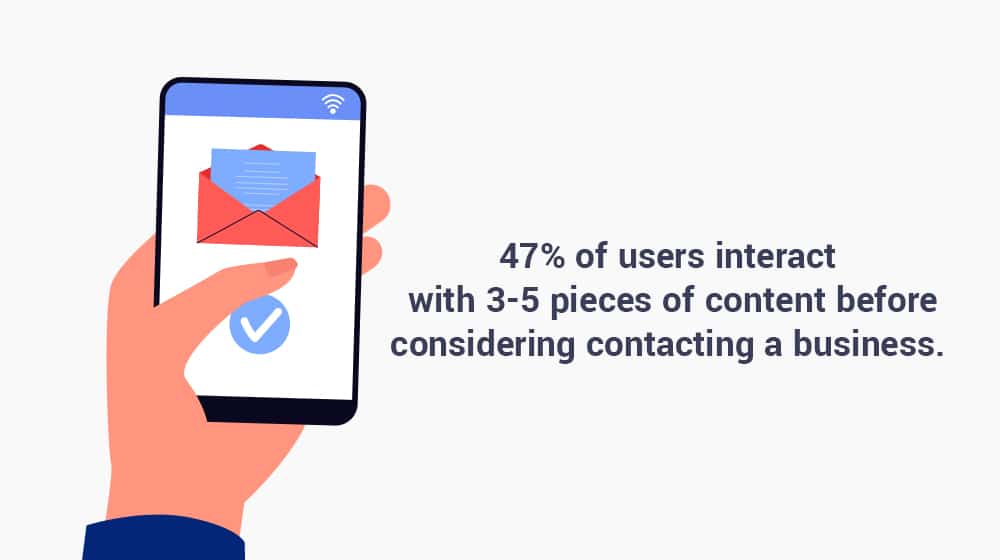
Your content is an expression of your authority, your perspectives, and your trustworthiness. Even people who don't really want to read your blog at least want to know you're producing one because scammers rarely do.
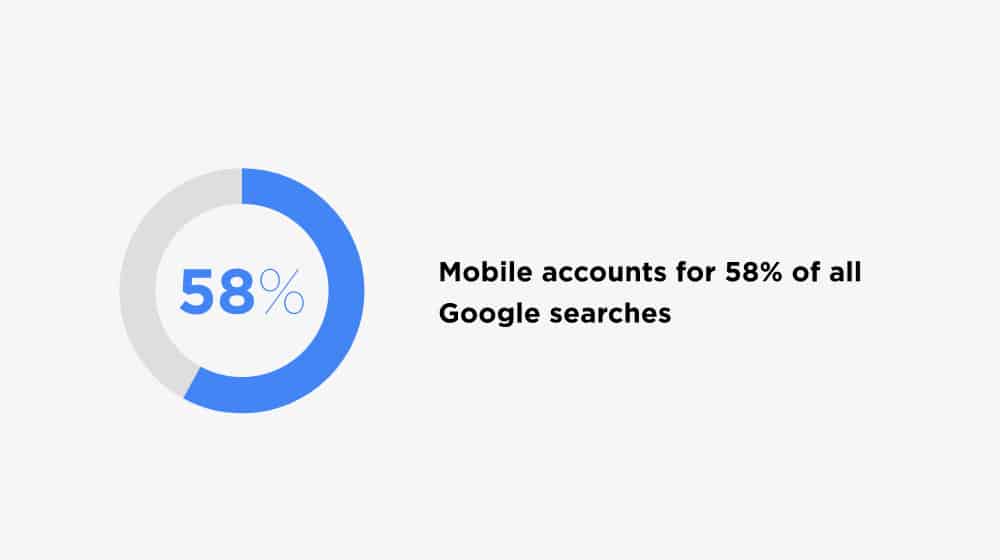
Some people predicted that computers would be obsolete by now, which was clearly wrong, but mobile usage is still increasing. Equilibrium will eventually be reached, but it's still going to tip further in favor of mobile search for the next several years at least.
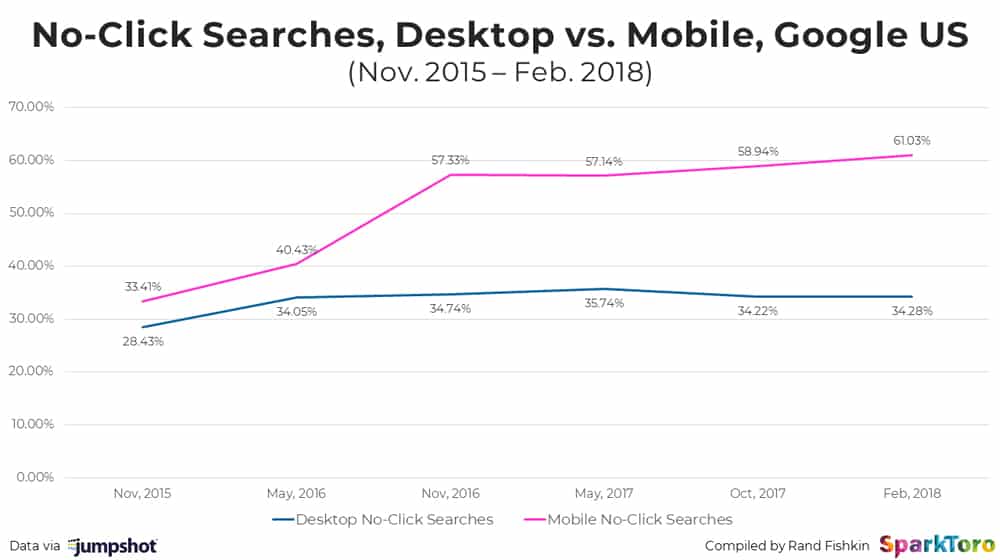
This is because search results with featured snippets are more likely to answer questions, and the roulette game of "is this site mobile-compatible or will it load quickly?" is a game a lot of people just don't want to play if they can avoid it.
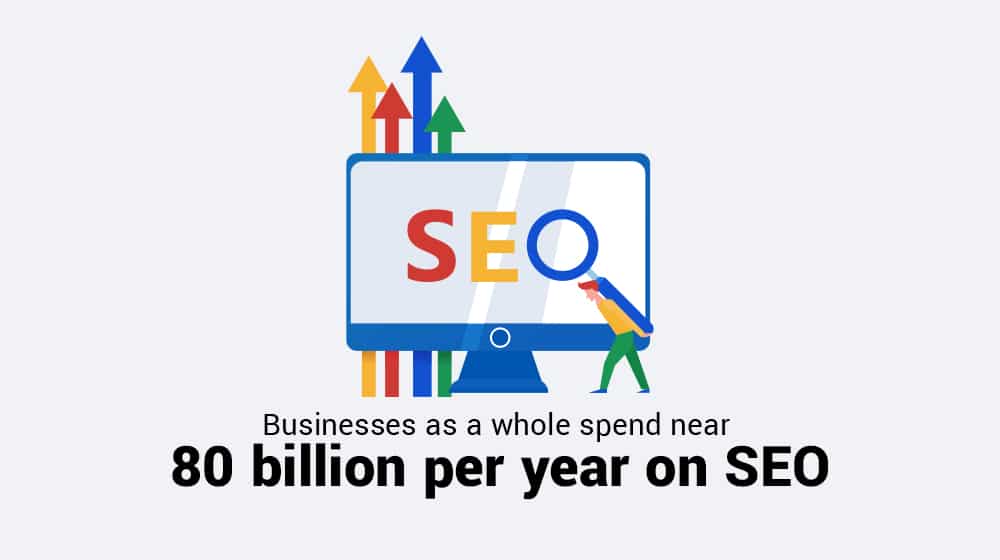
That's nothing to scoff at, though it's still nowhere near the top ten, which are all 700 billion or more. Still, it's a growing industry year over year, and the #1 is over a trillion.
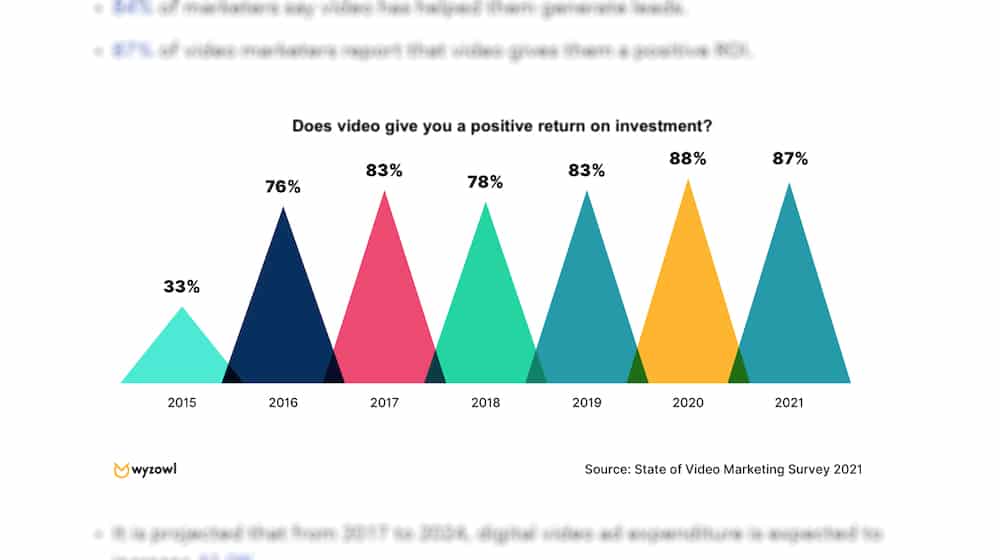
Content is content, and video content still needs to be written. Did you know that writers are among the most valuable marketing assets?
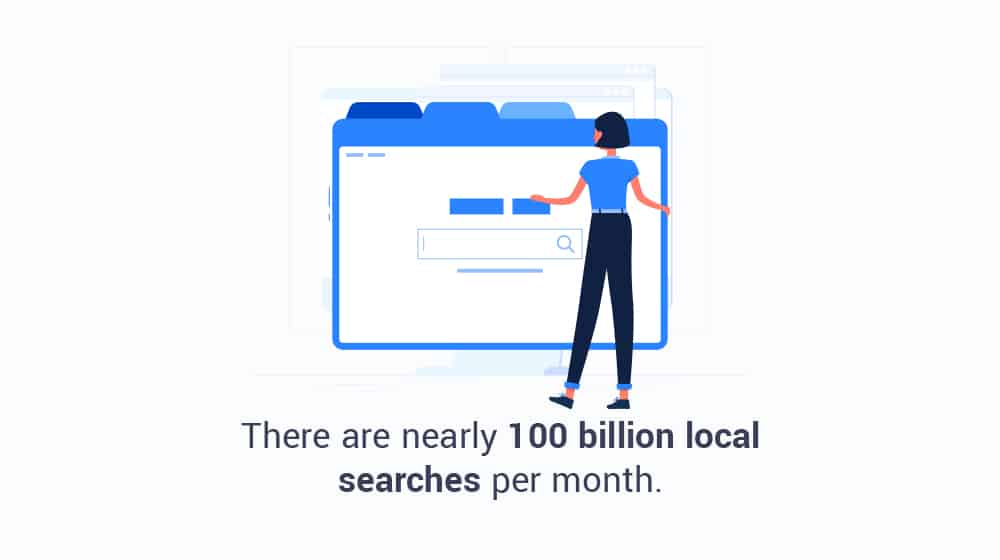
Once again, it cannot be overstated how important local keywords are to the marketing efforts of businesses that can use them. People really tend to prefer local resources when possible these days.
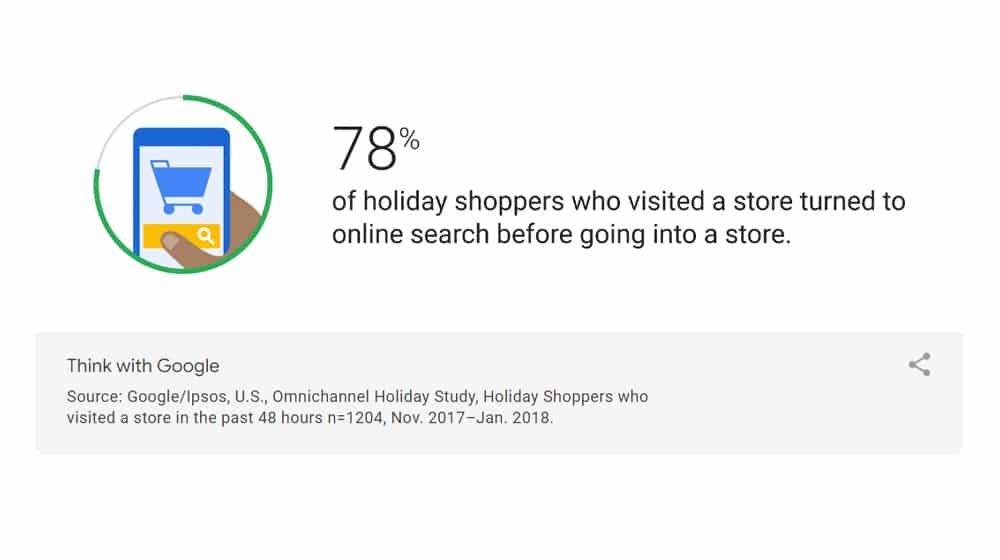
These purchases can be either online or in-store, but they still follow after a local search. Chances are you, the person reading this, have performed a local search to find a local place to make a purchase.
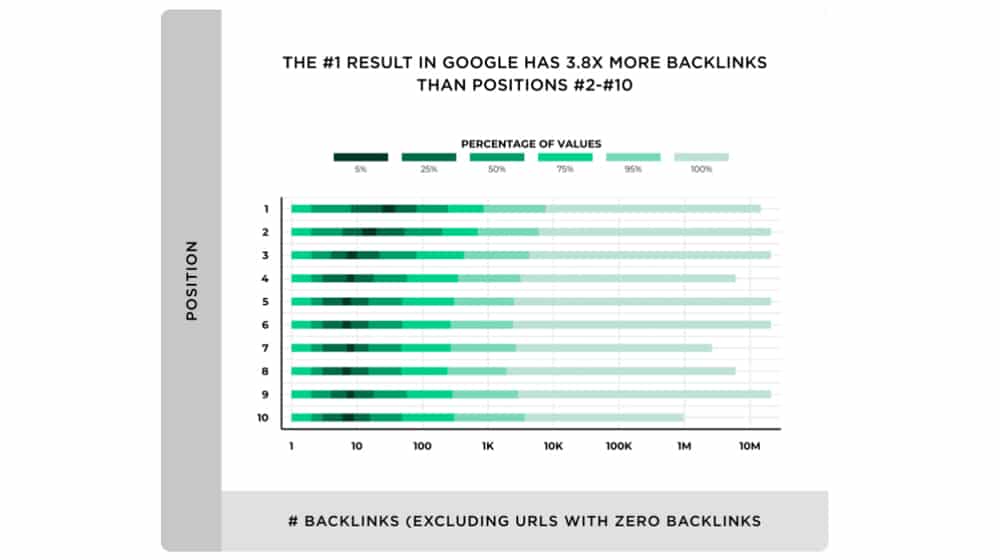
Building links to your website is extremely important, and the best way to build links is to have a vast library of content worth linking to. You can get a ton of value this way.
So, there you have it; 40 useful statistics to convince you of the importance of getting into SEO. There's a ton here to digest, and a wealth of sources to read through, so feel free to take your time analyzing what you've found. Trust me; there's something here for pretty much everyone.
Do you have any questions about any of the statistics that we listed? Or perhaps, do you think that we're missing an important statistic that is worth adding to this list? If you answered yes to either question, be sure to drop a comment down below! We'll gladly answer any of your potential questions, and if you know of any additional valuable search engine optimization statistics, we'll add them to make this list as comprehensive as possible! We greatly look forward to hearing from you!
We encourage you to share this article on Twitter and Facebook. Just click those two links - you'll see why.
It's important to share the news to spread the truth. Most people won't.